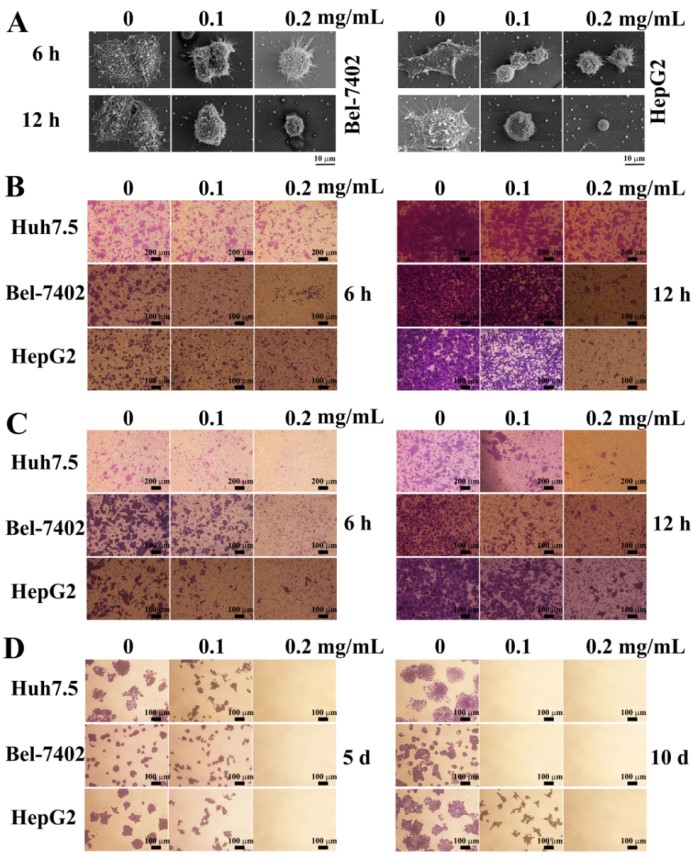How Does Marine Bacterial Exopolysaccharide EPS11 Inhibit Migration and Invasion of Liver Cancer Cells?
Many natural polysaccharides have significant anti-cancer activity with low cytotoxicity and side effects. They are considered as good substitutes for synthetic antitumor agents.
Recently, a research team lead by Prof. SUN Chaomin, a senior research fellow at the Institute of Oceanology of the Chinese Academy of Sciences (IOCAS), reported that EPS11, an exopolysaccharide produced by deep-sea bacterium Bacillus sp. 11, inhibits migration and invasion of liver cancer cells by directly targeting collagen I.
The study was published in Journal of Biological Chemistry on August 27.
Early in 2016, SUN’s group obtained an active polysaccharide EPS11 from fermentation broth of Bacillus sp. 11. After five years of study, the team expounded the chemical construction of EPS11 and found that EPS11 displayed dual antitumor activities of inhibiting cancer growth and metastasis. However, the underlying target protein and molecular mechanism of anti-tumor metastasis induced by EPS11 are still unclear.
In this study, the team found that the direct pharmacological target of EPS11 was collagen I based on the combination of proteomic analysis, cellular thermal shift assays and surface plasmon resonance.
Using gene over-expression and function blocking technology, they further revealed that EPS11 inhibited tumor metastasis by directly modulating collagen I activity via the β1-integrin-mediated signaling pathway.
These results revealed that EPS11 could specially target extracellular collagen I to suppress metastasis of liver cancer.
This study presents a novel mechanism underlying the anti-tumor metastasis of polysaccharides medicine, and provides a theoretical basis for developing more carbohydrate-based drugs.

EPS11 inhibits migration, invasion and colony formation of liver cancer cells.